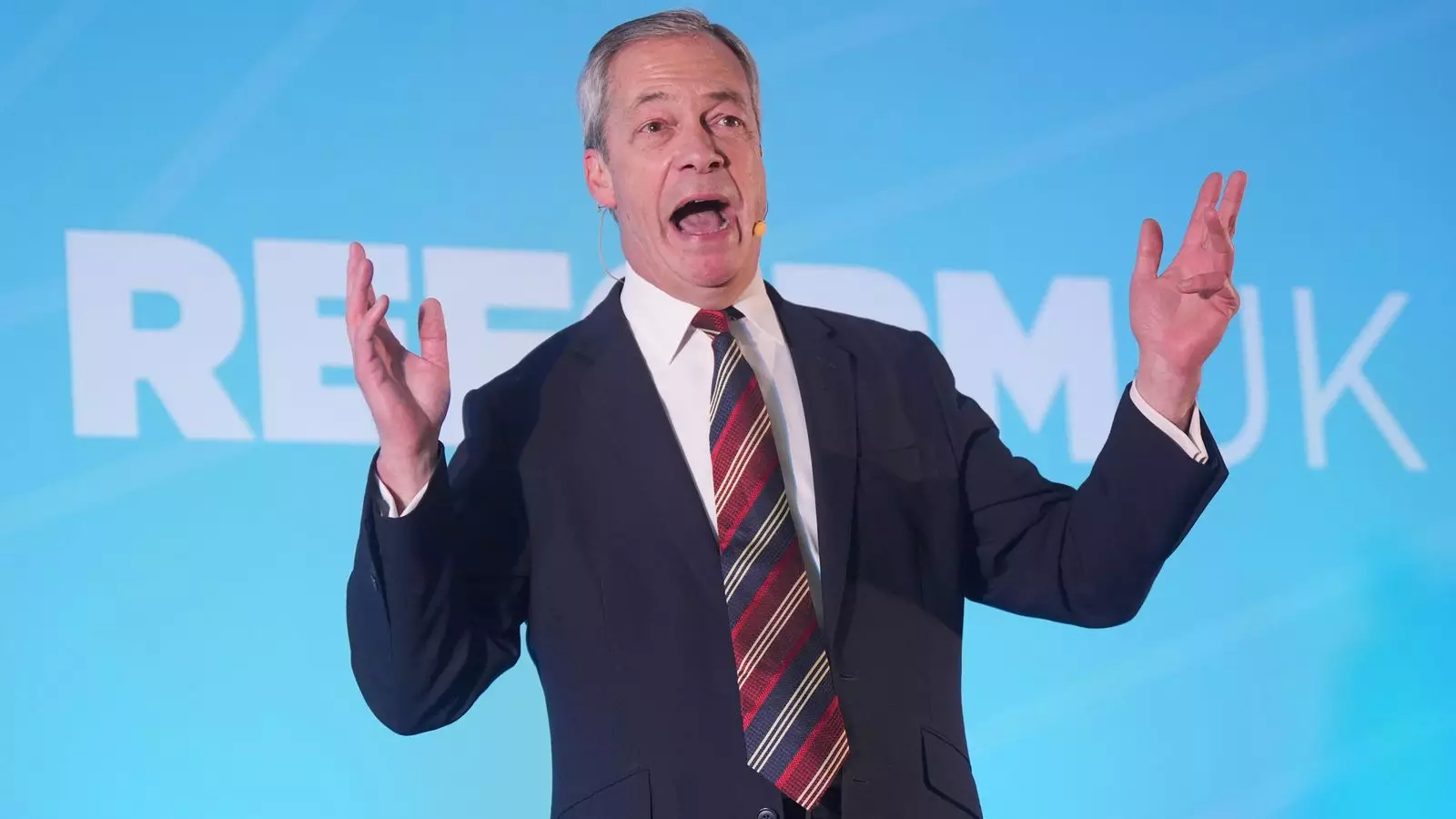In the ever-evolving landscape of political discourse, few exchanges manage to captivate audiences like the recent public spat between Nigel Farage, a prominent figure in British politics and leader of the Reform Party, and Elon Musk, the billionaire entrepreneur infamous for his forthright opinions. This confrontation stems from Musk’s assertion that Farage lacks the leadership qualities necessary to steer his political party effectively. Such a statement from Musk—a figure not typically associated with the nuances of UK politics—highlights the intersections between technology, finance, and politics, which are often fraught with tension and misunderstanding.
During a recent interview with Sky News, Farage displayed a resolute demeanor, insisting that no one, including Musk, could “push or bully” him into a position or opinion he does not support. This assertion is not merely a defense; it reflects a broader sentiment common among political figures who believe their stance and beliefs should be immune from external pressure, especially from influential entrepreneurs who may lack a profound understanding of the political landscape they are critiquing.
Farage described his relationship with Musk as one of camaraderie, acknowledging their exchanges and Musk’s capacity to speak candidly. However, he made it clear that their interaction is not without its friction, particularly regarding Musk’s controversial remarks concerning far-right activist Tommy Robinson. Farage’s refusal to align with Musk’s characterization of Robinson as a “political prisoner” illustrates the complexities and divisions within contemporary political thought even among allies.
The tensions between Farage and Musk are emblematic of a larger ideological battle that permeates the Reform Party’s platform. Farage’s commitment to distancing his party from controversial figures, such as Robinson—a polarizing character known for his severe and often inflammatory views—speaks volumes about his strategic vision for the Reform Party. He is eager to cultivate a political entity that seeks to resonate with a broader electorate rather than become associated with extremist viewpoints that could alienate moderate voters.
Farage’s comments reveal his intrinsic belief that maintaining the integrity and public perception of the Reform Party is paramount. His insistence that Robinson’s supporters are unwelcome underlines a distinct strategy: he aims to craft an identity for Reform UK that is both populist and palatable, avoiding the pitfalls associated with fringe political movements.
The conversation did not end with Musk. Farage’s engagement with pressing political issues extended into a critique of the Labour government’s devolution plans, suggesting that these proposals could undermine democracy by potentially postponing local elections. This assertion reflects Farage’s acute awareness of the dynamics of political power and local governance. He argued that this initiative is an imprudent maneuver by the ruling party to halt electoral participation, labeling it a “denial of democracy.”
His rhetoric here is indicative of a broader populist approach: positioning himself as a guardian of democratic processes while rallying his base around the perceived threats presented by the established political order. This kind of messaging is potent, particularly amongst disillusioned voters who feel left out of the political process.
Despite the turbulence surrounding his party’s image and leadership, Farage expressed optimism about Musk’s potential financial support. The prospect of significant donations from Musk is alluring; it suggests that even in the face of ideological disagreements, there may be grounds for collaboration that could bolster Reform UK’s financial portfolio and political clout. This dynamic illustrates the often-complicated relationships between political expediency and financial backing, particularly in a climate where campaign resources are crucial.
Farage’s acknowledgment that many of his supporters feel uncomfortable speaking publicly about their affiliation with Reform UK sheds light on the party’s current standing. His claim of “institutional bias” against right-leaning views may resonate with voters feeling marginalized in the broader political discourse. Nevertheless, for Farage to transform that sentiment into actionable support will require a sustained effort to shift public perception and engage more openly with the electorate.
The tension between Farage and Musk not only underscores the complexities of modern political alliances but also highlights the ongoing struggle within political movements to maintain coherence in ideology and public perception. As Farage continues to navigate the choppy waters of his party’s identity and external pressures, he must tread carefully, balancing the allure of outside support with the necessity of defining a distinct political message. The ramifications of this clash will play a pivotal role in shaping not only Reform UK’s future but also the greater political narrative in the UK as electoral dynamics shift in response to these controversies.

Leave a Reply